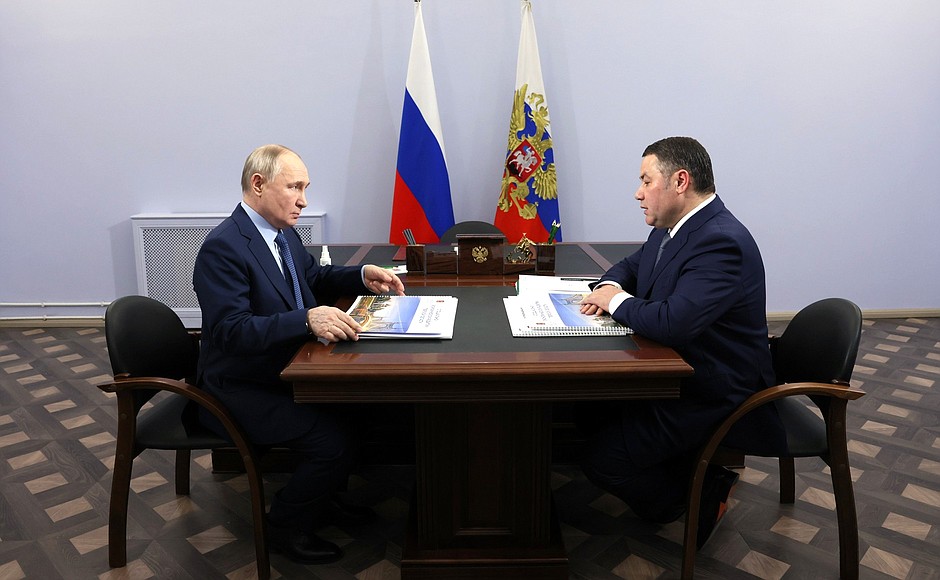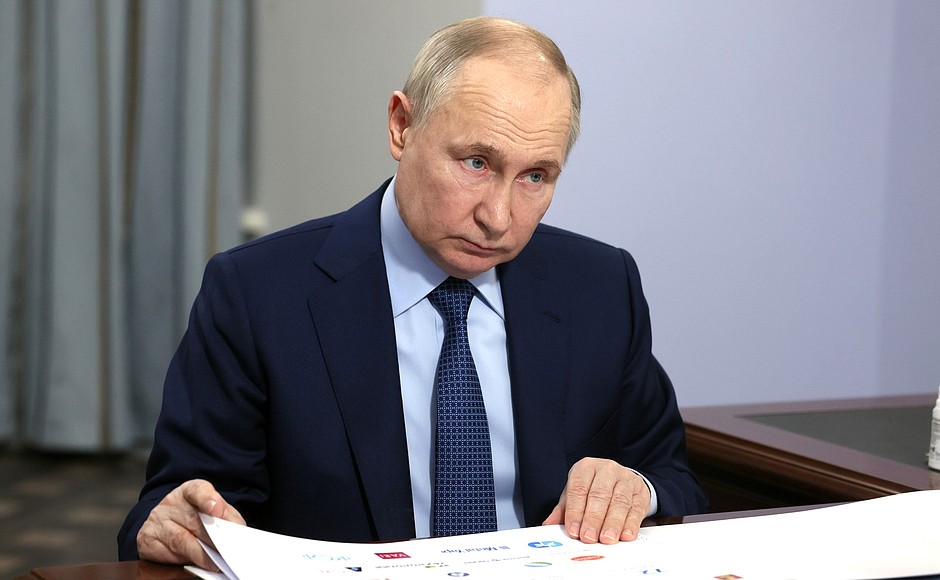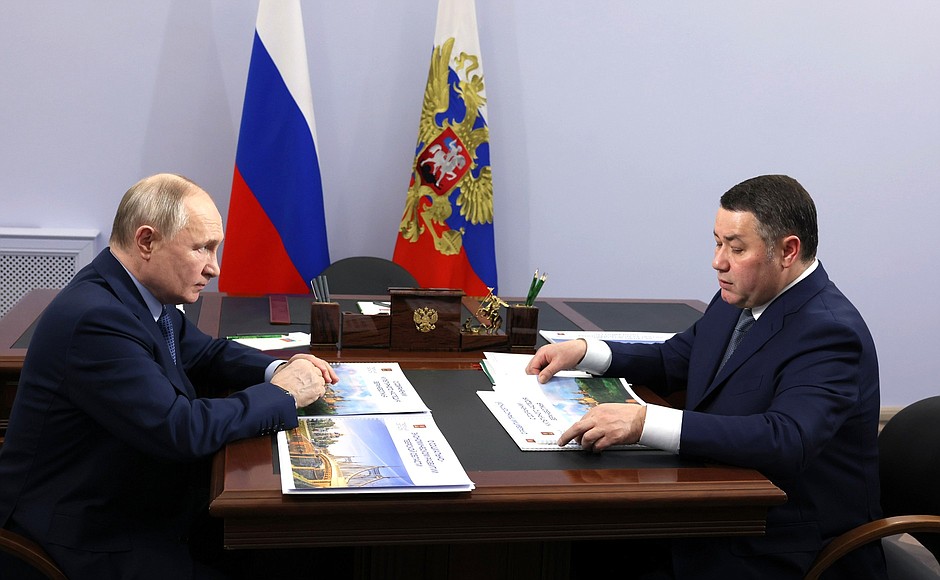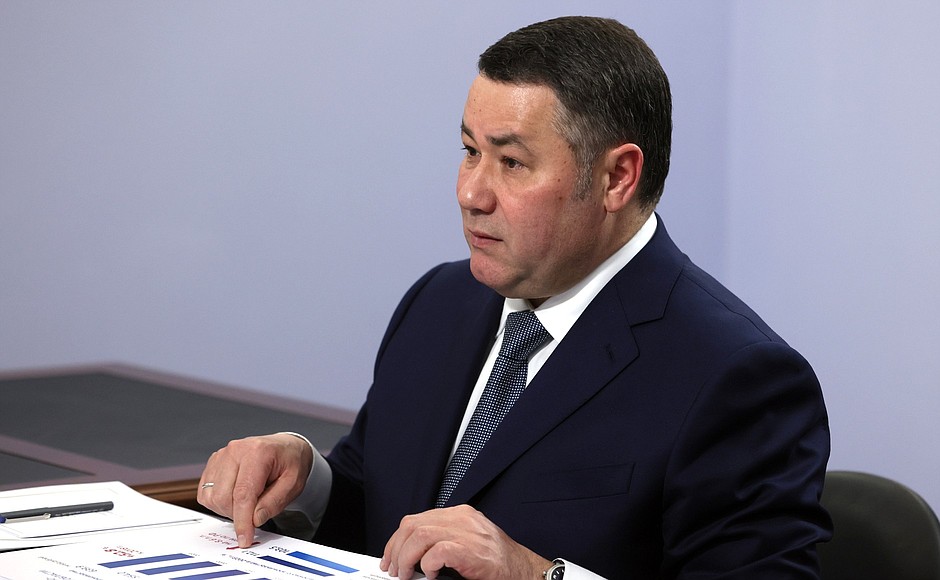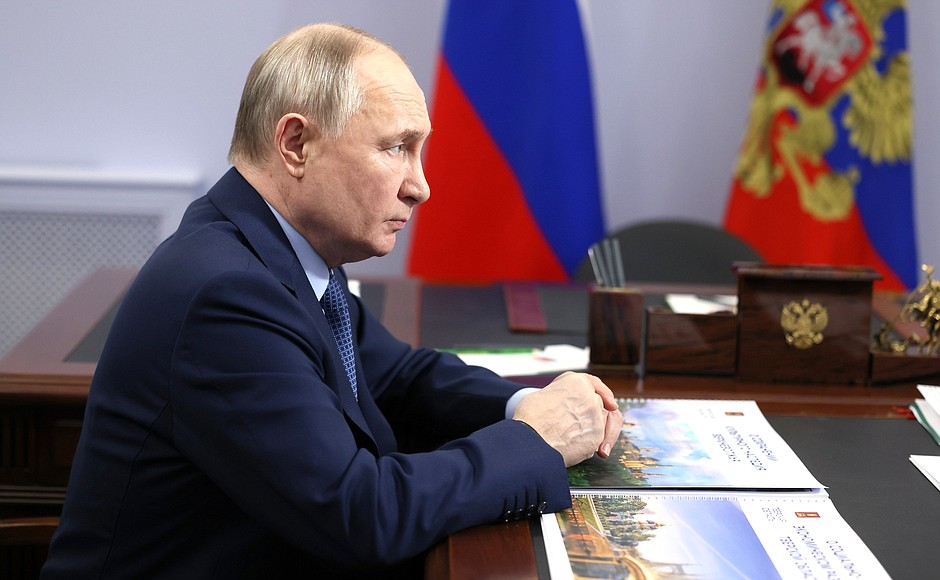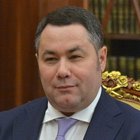Igor Rudenya thanked the President and the Government for supporting the region, in particular, for the publicly funded loans, which helped the regions increase their economic development potential. He also pointed out that Western sanctions had encouraged the national economy not only to build up import substitution projects but also to work on its technological sovereignty.
Vladimir Putin noticed a beautiful presentation slide of a historical bridge across the Volga and a cathedral in Tver. The Governor explained that the cathedral was built in 1285 and torn down in the 1930s to clear the area for a park. The cathedral has been rebuilt and opened for service on January 1, 2024. The bridge is a symbol of Tver and features on the business logos of many companies based in the city.
Igor Rudenya spoke about the growth of industrial facilities in the region, including thanks to support provided to mechanical engineering, and the development of rail car manufacturing. The region is looking forward to the construction of the Moscow-St Petersburg high-speed railway line, which will boost the region’s GDP thanks to the construction of the rail line, bridges and engineering structures. Tver groups of companies will also take part in designing and building rolling stock for the high-speed line.
See also
The region’s economy is expected to flourish thanks to the establishment of the Emmauss special economic zone as per the President’s instructions. The Governor said that they started building a new plant that will produce cableways substituting the products of Western companies which have left the Russian market. Woodworking companies, the manufacturing of computers and electric appliances and the food sector are also growing in the region.
The region has achieved an unprecedentedly low unemployment rate of nearly 0.4 percent. The creation of new high-tech jobs has allowed for retaining both young people and the working-age population. Population decline has decelerated significantly, notably attributed to the establishment of a regional Ministry of Family and Demographic Policy. Moreover, there has been a rise in the number of large families.
In response to the President’s question regarding the staffing of paramedic and midwifery stations, the governor spoke about the implementation of targeted training initiatives at the medical institute and secondary vocational healthcare educational facilities across the region. Under this scheme, young people enter into agreements, and district heads or leaders of the municipality hosting the central district hospital decide on their future place of employment. Participants in this programme receive enhanced scholarships and increased allowances. Additionally, upon completion of their secondary specialised education, they commit to working for three to five years in the specified region and medical facility. This programme commenced on September 1, 2023, with significant outcomes anticipated by 2025.
The meeting participants also discussed topics concerning the cultural life of the region. Igor Rudenya elaborated on the historical significance of cities within the Tver Region, including Ostashkov, Torzhok, Toropets, the city of Tver itself, Rzhev, and several other historic towns. He also spoke about ongoing efforts in restoring numerous historical sites, notably the ancient Boris and Gleb Monastery in Torzhok, dating back to 1036–1056. Preparations are underway to mark the 950th anniversary of Toropets this year, with various historical landmarks undergoing restoration, funded by BRICS.
The governor noted the large number of industrial facilities in Torzhok, accompanied by a substantial influx of freight vehicles, including heavy trucks, traversing the historical centre. However, road renovation and reinforcement are impeded due to archaeological constraints. Igor Rudenya asked the President to consider the construction of a bypass road around Torzhok. Vladimir Putin suggested to elaborate further on this matter.
